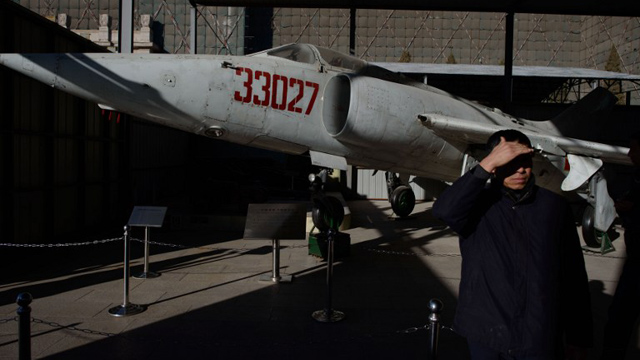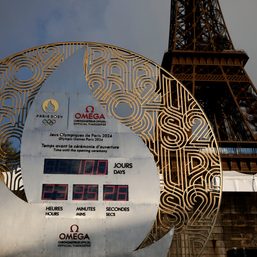SUMMARY
This is AI generated summarization, which may have errors. For context, always refer to the full article.

BEIJING, China – China’s state media called Friday for “timely countermeasures without hesitation” if Japan violates the country’s newly declared air zone, after Beijing sent fighter jets to patrol the area following defiant military overflights by Tokyo.
Japan and South Korea both said Thursday they had disregarded the air defense identification zone (ADIZ) that Beijing declared last weekend, showing a united front after US B-52 bombers also entered the area.
The zone includes disputed islands claimed by China, which knows them as the Diaoyus, but controlled by Japan, which calls them the Senkakus, and Beijing’s ADIZ was condemned in Washington, Tokyo, South Korea and elsewhere.
China sent fighter jets and an early warning aircraft into the area Thursday, the official Xinhua news agency reported after Tokyo said its military and coastguard had both flown through it.
Washington has security alliances with both Tokyo and Seoul, and analysts say that neither China nor Japan -–the world’s second- and third-biggest economies, and major trading partners of each other – want to engage in armed conflict.
But Beijing is facing mounting internal pressure to assert itself.
Pressure and support
The Global Times newspaper, which often takes a nationalistic tone, said in an editorial Friday: “We should carry out timely countermeasures without hesitation against Japan when it challenges China’s newly declared ADIZ.
“If Tokyo flies its aircraft over the zone, we will be bound to send our plane to its ADIZ.”
The paper, which is close to China’s ruling Communist party, said: “If the trend continues, there will likely be frictions and confrontations and even tension in the air like in the Cold War era between the US and the Soviet Union. We are willing to engage in a protracted confrontation with Japan.”
But it shied away from threatening Washington, which sent giant Stratofortress bombers inside the zone, issuing an unmistakable message.
“If the US does not go too far, we will not target it in safeguarding our air defence zone,” the paper said, adding that Australia could be “ignored” and that South Korea “understands” as it has tensions of its own with Japan.
China’s Communist Party seeks to bolster its public support by tapping into deep-seated resentment of Japan for its brutal invasion of the country in the 1930s.
The media rhetoric came after Chinese planes conducted air patrols on Thursday as “a defensive measure and in line with international common practices”, Xinhua quoted People’s Liberation Army (PLA) Air Force spokesman Shen Jinke as saying.
China first sent fighters, scouts and early warning aircraft into the zone on Saturday, Xinhua reported earlier, and the East Sea Fleet’s air arm has also been flying in the area, according to state broadcaster CCTV.
Flared tempers
The Yomiuri Shimbun reported that the US and Japan planned to enhance military cooperation in the area, with Tokyo permanently stationing E-2C early-warning planes in Okinawa, and US Global Hawk unmanned drones expected to be operated from Japan soon.
US vice president Joe Biden is visiting the region next week, and administration officials said that while in Beijing he will raise Washington’s concerns about the ADIZ, and China’s assertiveness towards its neighbours.
The Philippines has voiced concern that China may extend control of air space over disputed areas of the South China Sea, where the two nations have a separate territorial dispute.
The islands dispute lay dormant for decades but flared in September 2012 when Tokyo purchased three of the uninhabited outcrops from private owners.
Beijing accused Tokyo of changing the status quo and has since sent surveillance ships and aircraft to the area, prompting Japan to scramble fighter jets hundreds of times. – Rappler.com
Add a comment
How does this make you feel?





There are no comments yet. Add your comment to start the conversation.